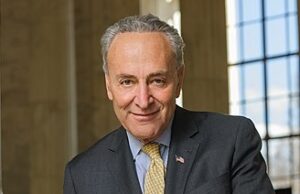WASHINGTON, DC – March 24, 2011 – (RealEstateRama) — U.S. Housing and Urban Development Secretary Shaun Donovan announced today that public housing agencies across the United States will receive nearly $54 million to link low-income families with the necessary education and job training to put them on the path to self-sufficiency. See local funding here.
Funded through HUD’sHousing Choice Voucher Family Self-Sufficiency Program (HCV/FSS), the grants allow public housing agencies (PHAs) to work with welfare agencies, schools, businesses, and other local partners to develop a comprehensive program to help individuals already participating in HUD’s Housing Choice Voucher Program increase their education or gain marketable skills that will enable them to obtain jobs that pay a living wage.
“This program is absolutely critical in today’s economy,” said Donovan. “The research demonstrates that this program works. When families are given the tools they need to move beyond the voucher program, they do. Ultimately, they become self-sufficient and more vouchers become available for other families, some who have been waiting for long periods to receive housing assistance. For America to win the future we need a trained and skilled workforce.”
The funding allows local housing authorities to hire coordinators (or caseworkers) to link adults in the Housing Choice Voucher program to local organizations that provide job training, childcare, counseling, transportation and job placement.
Participants in the HCV/FSS program sign a contract that requires the head of the household to get a job and the family will no longer receive welfare assistance at the end of the five-year term. As the family’s income rises, a portion of that increased income is deposited in an interest-bearing escrow account. If the family completes its FSS contract, the family receives the escrow funds that it can use for any purpose, including paying educational expenses, starting a business or paying back debts.
The Family Self Sufficiency (FSS) Program is a long-standing resource for increasing economic security and self-sufficiency among HCV participants. A new report just issued by HUD evaluated the effectiveness of the FSS Program. Conducted from 2005 to 2009, HUD’s study shows the financial benefits are substantial for participants who remain and complete the program. This study is the second of a three-part series by HUD that evaluate the effects of the FSS program. The first study in the seriesfound individuals who participated in the FSS program fared better financially than those who did not enroll in the program. HUD’s Office of Policy Development and Research (PD&R) will launch the third and final installment to complete this series this year.
PD&R will also launch two additional studies this year about the FSS program. The first study will examine whether FSS participants who were still enrolled when the Prospective Study ended went on to graduate from the FSS program and whether they met their goals for financial self-sufficiency. The second will study the effectiveness of the FSS program nationally. This will be the first national study of the FSS program as part of HUD’s Transformation Initiative, which was created in 2010 to encourage more transparency and accountability within the agency.
HUD’s mission is to create strong, sustainable, inclusive communities and quality affordable homes for all. HUD is working to strengthen the housing market to bolster the economy and protect consumers; meet the need for quality affordable rental homes: utilize housing as a platform for improving quality of life; build inclusive and sustainable communities free from discrimination; and transform the way HUD does business. More information about HUD and its programs is available on the Internet at www.hud.gov and espanol.hud.gov.
HCV FAMILY SELF-SUFFICIENCY 2010 FUNDING
|
State |
Amount Funded |
State |
Amount Funded |
|
|
ALASKA |
$198,642 |
MONTANA |
$205,703 |
|
|
ALABAMA |
$807,785 |
NORTH CAROLINA |
$1,529,115 |
|
|
ARKANSAS |
$692,794 |
NORTH DAKOTA |
$203,672 |
|
|
ARIZONA |
$1,123,976 |
NEBRASKA |
$241,760 |
|
|
CALIFORNIA |
$6,521,260 |
NEW HAMPSHIRE |
$348,028 |
|
|
COLORADO |
$672,919 |
NEW JERSEY |
$1,559,819 |
|
|
CONNECTICUT |
$849,770 |
NEW MEXICO |
$524,949 |
|
|
DISTRICT OF COLUMBIA |
$276,000 |
NEVADA |
$490,453 |
|
|
FLORIDA |
$2,120,669 |
NEW YORK |
$4,190,459 |
|
|
GEORGIA |
$697,378 |
OHIO |
$2,380,671 |
|
|
GUAM |
$56,718 |
OKLAHOMA |
$405,321 |
|
|
HAWAII |
$582,953 |
OREGON |
$1,650,322 |
|
|
IOWA |
$1,043,954 |
PENNSYLVANIA |
$1,524,228 |
|
|
IDAHO |
$559,934 |
PUERTO RICO |
$113,290 |
|
|
ILLINOIS |
$1,928,398 |
RHODE ISLAND |
$580,144 |
|
|
INDIANA |
$913,571 |
SOUTH CAROLINA |
$368,620 |
|
|
KANSAS |
$351,994 |
SOUTH DAKOTA |
$145,921 |
|
|
KENTUCKY |
$1,331,782 |
TENNESSEE |
$1,089,225 |
|
|
LOUISIANA |
$270,357 |
TEXAS |
$3,295,806 |
|
|
MASSACHUSETTS |
$2,229,478 |
UTAH |
$378,864 |
|
|
MARYLAND |
$1,431,914 |
VIRGINIA |
$1,090,741 |
|
|
MAINE |
$93,462 |
VERMONT |
$386,383 |
|
|
MICHIGAN |
$1,844,754 |
WASHINGTON |
$1,189,399 |
|
|
MINNESOTA |
$423,241 |
WISCONSIN |
$495,090 |
|
|
MISSOURI |
$1,266,190 |
WEST VIRGINIA |
$139,502 |
|
|
MISSISSIPPI |
$712,798 |
WYOMING |
$34,340 |
|
|
TOTAL |
$53,564,516 |
Contact:
Donna White
(202) 708-0685














